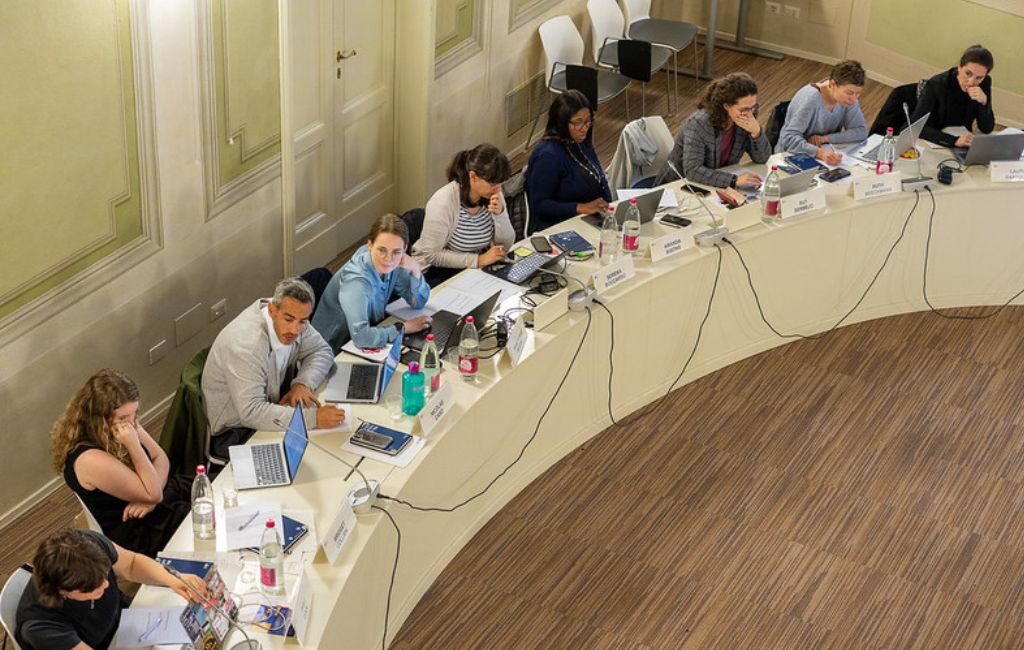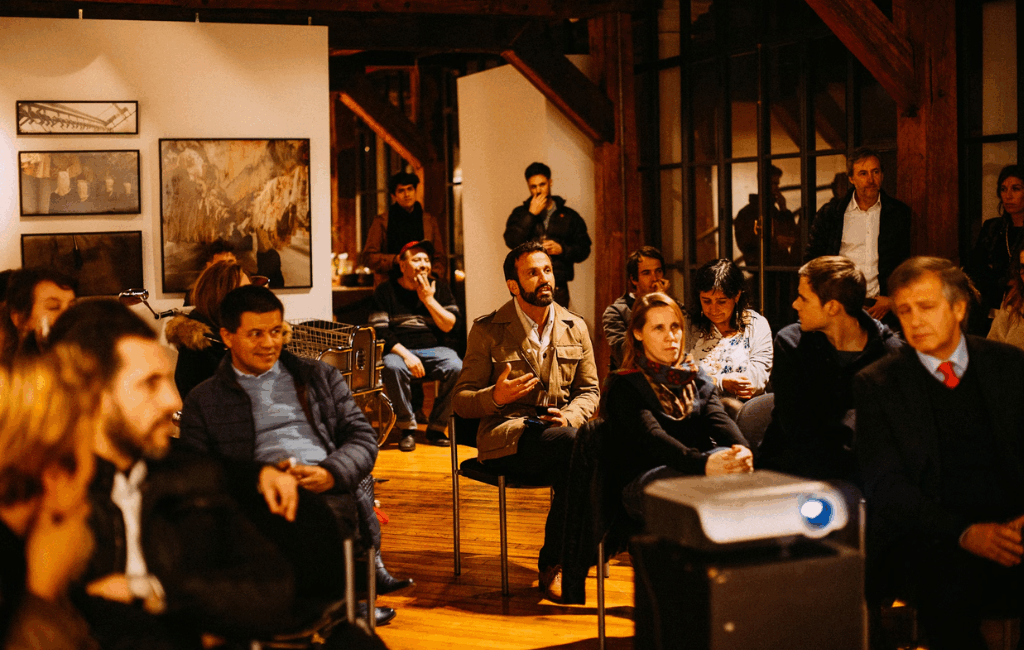
RESEARCH EXCHANGE
How to communicate your research? Meet one-on-one
Author
About
Flaminia Delle Cese and Melina Koumpou
advocacy
If you are a researcher or a practitioner, you have likely produced several research papers or programme reports throughout your career – and will most likely produce as many of these products in the future. And all this intense work could be much more impactful if it reaches the right people, at the right moment and in the right way.
You might think that viral social media posts or news appearances are the key ways to grab attention, but you shouldn’t overlook the power of connecting with individuals.
Individualised engagement fosters deeper, more meaningful interactions, allowing for stronger, trust-based relationships between advocates and policymakers. Over time, these relationships foster open lines of communication, making it easier to set up meetings to present our evidence in ways that are aligned with the political and practical realities of the policy-making process. In this short, we will share strategies, tips and suggestions to help researchers and practitioners connect with institutional stakeholders and increase the chance that their publications eventually feed into the policy-making process.
Background
The International Rescue Committee (IRC) has successfully used this approach in its advocacy efforts across Europe. From influencing asylum policies in Italy to ensuring children’s rights in Greece, IRC’s work demonstrates the power of direct engagement. For example, in Italy, advocates have secured safer, more accessible asylum processes by providing policymakers with first-hand evidence and fostering ongoing dialogue. In Greece, direct engagement has held stakeholders accountable for guaranteeing fair asylum procedures for children arriving from outside the EU. These successes highlight how targeted, evidence-based discussions can lead to tangible policy changes, even in complex and challenging contexts. By drawing from this experience, the IRC has identified key strategies to enhance individualised engagement.
Here are five strategies that we’ve applied in our work and some tips that you might consider as well:
- Rely on first-hand evidence and data: as policymakers constantly receive reports, briefs and papers, it is important that you provide them with first-hand, evidence-based data from the programmes implemented by the organisation to build trust on the findings provided and catch their attention and interest with information that cannot be gathered from other sources. This will make you a unique, accountable and more authoritative voice to speak on a certain matter.
- Find a ‘hook’: when trying to secure a meeting with a policymaker, try to find an element that catches their attention to increase the chance of receiving a positive answer. This could be a report or a research paper that you have recently published, a policy change under discussion or any other event or recurrence relevant to the issue you are working on.
- Do your homework on your audience: before asking a policymaker to meet, take time to conduct thorough research on whom you should meet, their role in their institution, and their potential to have direct impact in the policy-making process. If possible, look for their CV, follow them on social media and listen to their previous interviews to understand their views, identify common grounds for discussion and solutions for the issue or process you are trying to influence and address the policymaker’s specific interests or challenges.
- Prepare, tailor, and practice: once the meeting has been scheduled, prepare in advance to make sure that you and any other participants are aware of the goal of the meeting and the evidence you want to present. This includes drafting talking points to stay focused during the meeting and clearly stating your evidence and recommendations.
- Be flexible: even if the recommendations and the asks are clear from your side, if the policymaker seems hesitant to support them, offer alternatives or compromises that may still achieve your objectives, ask for smaller commitments or concessions that could lead to bigger support later. In this way, you can build a relationship that can last and have a trustworthy ally.
- Rely on first-hand evidence and data: as policymakers constantly receive reports, briefs and papers, it is important that you provide them with first-hand, evidence-based data from the programmes implemented by the organisation to build trust on the findings provided and catch their attention and interest with information that cannot be gathered from other sources. This will make you a unique, accountable and more authoritative voice to speak on a certain matter.
How to Get Started
Building lasting relationships with policymakers requires consistent effort.
Next time you have a meeting with a policymaker who can support your objectives, remember to:
Engage in person: whenever possible, create personal connections through direct meetings, events, and site visits. By scheduling meetings in person, you create a personal atmosphere, allow for openness and back-and-forth dialogue and gain trust. You should not stop there though, as policymakers meet a lot of people daily, so you should attend public fora and events they are also participating in and invite them to events or site visits – if possible – your organisation is planning
Prepare specific and tailored messages: in your interactions, work to show how this issue could impact the policymaker’s area of focus and his or her key priorities. They need to know why the research is relevant to them.
Actively follow up: right after the meeting, follow up with the policymaker(s) you have met to thank them for their time and attention – but don’t limit yourself to that. Work on a plan to actively follow up with them in the weeks following the meeting to monitor the status of the policy-making process you are trying to influence and any progress towards your objective. If they have committed to taking any action, kindly remind them of that in due course – consistency is key from both ends.
By doing these, you’ll start creating trust-worthy relationships that help ensure your research reports, articles and publications actually feed policymaking processes.
Flaminia Delle Cese is a Legal and Advocacy Advisor for IRC Italy.
Melina Koumpou is an Advocacy Advisor for IRC Greece.
Learn more:
- Resource Bank – How can I engage with policymakers?
- Guidance Note – 9 Laws of Successful Advocacy Communication
- Report – IRC Italy’s efforts to facilitate safe and timely access to asylum
Submit your idea for a ‘short’ to be featured on the Co-Lab.












